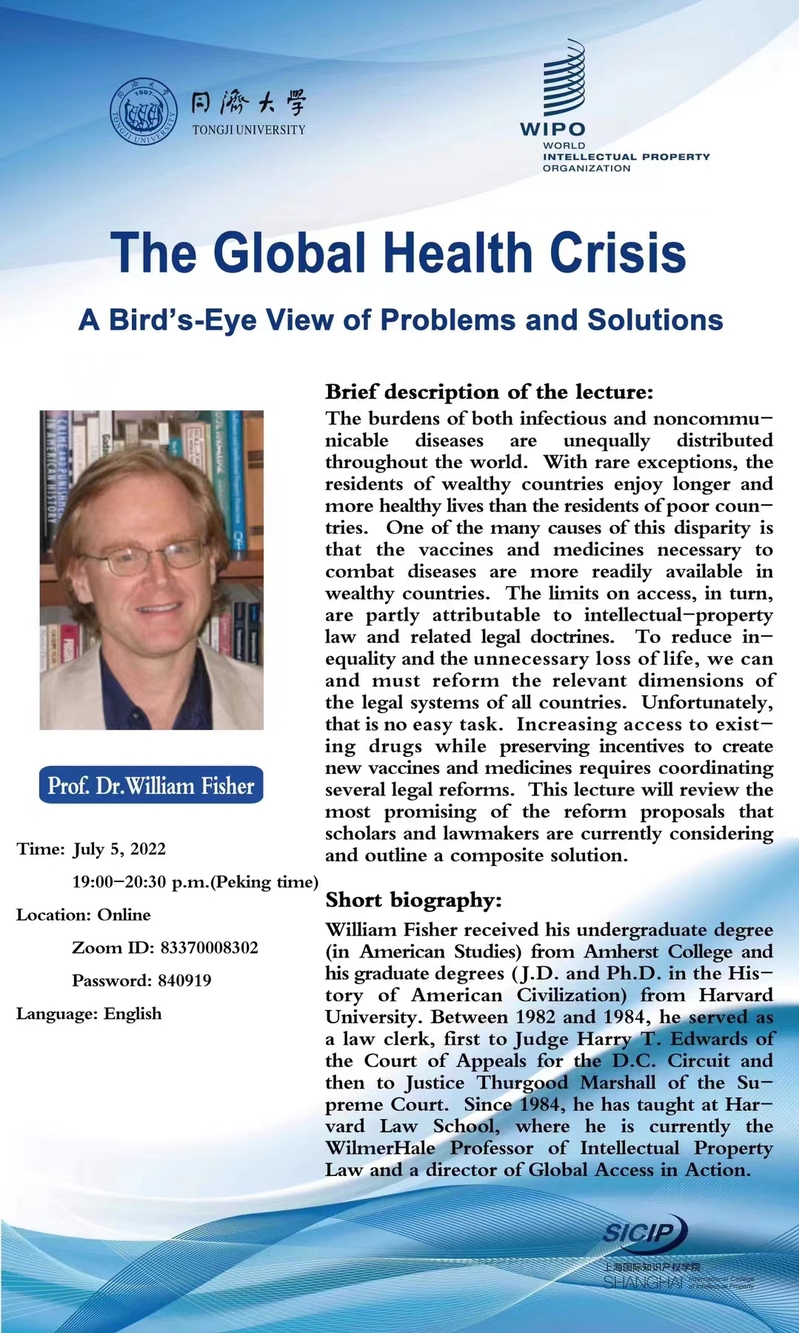

Brief description of the lecture:
The burdens of both infectious and noncommunicable diseases are unequally distributed throughout the world. With rare exceptions, the residents of wealthy countries enjoy longer and more healthy lives than the residents of poor countries. One of the many causes of this disparity is that the vaccines and medicines necessary to combat diseases are more readily available in wealthy countries. The limits on access, in turn, are partly attributable to intellectual-property law and related legal doctrines. To reduce inequality and the unnecessary loss of life, we can and must reform the relevant dimensions of the legal systems of all countries. Unfortunately, that is no easy task. Increasing access to existing drugs while preserving incentives to create new vaccines and medicines requires coordinating several legal reforms. This lecture will review the most promising of the reform proposals that scholars and lawmakers are currently considering and outline a composite solution.
Short biography:
William Fisher received his undergraduate degree (in American Studies) from Amherst College and his graduate degrees (J.D. and Ph.D. in the History of American Civilization) from Harvard University. Between 1982 and 1984, he served as a law clerk, first to Judge Harry T. Edwards of the Court of Appeals for the D.C. Circuit and then to Justice Thurgood Marshall of the Supreme Court. Since 1984, he has taught at Harvard Law School, where he is currently the WilmerHale Professor of Intellectual Property Law and a director of Global Access in Action. His full CV is available at https://ipxcourses.org/REF/Fisher_Vita.pdf.







 0086-021-65983113
0086-021-65983113  sicip_intoff@tongji.edu.cn
sicip_intoff@tongji.edu.cn